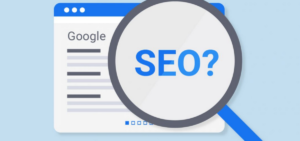SEO, or search engine optimization, is a multifaceted process that requires a deep understanding of search engines and user behavior. It can be a great way to bring traffic to your website and increase your revenue.
A good SEO-friendly introduction is clear and concise. It tells readers what the article is about, and focuses on the keyword that you’re targeting. Contact Rank Boss now!

Keywords are a key element in SEO, and proper usage is crucial to success. They help search engines understand the topic and relevance of content, and they also serve as a bridge between user queries and your website’s content. By incorporating relevant keywords in your title, headers, meta description, and body text, you can ensure that your content is highly visible to the right people.
Keyword research is the first step in creating an effective SEO strategy, and it is a process that requires trial and error to get right. There are several factors that influence keyword selection, including search volume, competition, and relevancy. In addition, it is important to use the right type of keywords for your specific business and audience.
When selecting keywords for your content, you should consider both branded and unbranded search terms. Branded search terms contain the name of a particular brand, such as “calvin klein” or “nike.” Unbranded search terms describe a customer problem, such as “buy nike shoes online.” Incorporating both types of keywords into your content can help you reach more customers and improve your search engine rankings.
Search engine optimization is the process of optimizing a web page for better visibility in search results pages (SERPs). It involves researching keywords and writing quality content that answers users’ questions. Search engines use keywords to determine the relevance and quality of content, and high-quality, well-optimized content is more likely to rank higher in SERPs.
Keywords are the foundation of SEO, and they can be used in a variety of ways to improve ranking and drive traffic to your site. The most common uses of keywords include the title, headings, and meta description. However, there are many other techniques to maximize the effectiveness of your keyword strategy. One such technique is using synonyms in your content, which helps accommodate the diverse search terms users use. This increases your relevancy and demonstrates that you have a deep understanding of your subject. It also allows you to rank for a wider range of searches. Another benefit of keyword variation is that it can help you understand the context and intent of a user query, which is useful in crafting more relevant content.
Content
A well-rounded SEO strategy includes writing valuable, relevant content for users. This content is what helps you stand out amongst competitors and improve your ranking. It also increases the likelihood that visitors will click on your page and ultimately purchase your products or services.
Creating effective SEO content requires careful planning. You need to ensure that your content is relevant to the search query, meets user intent, and is free of errors. To do this, you need to understand the importance of keyword research.
SEO is an ever-changing field, so it’s important to keep up with the latest trends and updates. A great way to do this is by regularly analyzing your search engine data and optimizing your content accordingly. Moreover, it’s a good idea to have a team of professional writers who can write SEO-friendly content.
It’s also important to note that the amount of text on a webpage is not necessarily a factor in its ranking. However, it’s essential that your content is easy to read and well-organized. A good way to do this is by using heading tags (H1, H2, etc.) and by breaking up long paragraphs into smaller sections. Additionally, it’s a good idea to use bullet points and visuals where appropriate.
Another important factor is your content’s quality. Make sure that your content is accurate and free of grammatical and spelling mistakes. It’s also a good idea to include internal links in your content. This will help search engines understand your content better and will give your site more authority and reliability.
Lastly, it’s important to have a regular schedule for producing new content. This will help you stay ahead of your competition and increase your chances of getting on the first page of Google’s results. In addition, it will help you build a loyal audience.
Link building
Link building is a vital part of any SEO strategy. It’s how search engines find new content to index, and it helps them understand how pages relate to one another. This, in turn, affects a page’s relevance.
The first step in link building is to create something of value that is worthy of a link. This could be a blog post, tool, or research study. In addition to providing a valuable resource, this kind of content shows that you have a unique perspective on an industry topic and can establish you as an expert in your field.
After that, it’s time to start reaching out to people who would be interested in your content. The best way to do this is through email outreach. The goal is to get the link back, but it’s important to remember that you need to make your request as personal and as relevant as possible. It’s also a good idea to offer other benefits in return for the link, such as guest blogging or social media promotion.
A well-planned link building strategy can help you increase your website’s rankings, drive more traffic, and ultimately, improve sales and revenue. However, it’s important to avoid spammy techniques, which can damage your reputation and violate Google’s guidelines.
You can use tools like Semrush to identify high-quality prospects, and then track the progress of your outreach efforts in real-time. This will give you an edge over your competition and ensure that your strategy is working.
Besides increasing your site’s ranking, the right links can also boost your brand recognition and increase user engagement. However, you should never focus on link building as the primary objective of your marketing campaigns.
If you want to get a better understanding of how links affect your SEO, try comparing Domain Authority and Brand Authority. The two metrics work together to provide an accurate and holistic picture of a website’s overall health. For example, a popular brand with a large number of quality links may have a high Domain Authority but low Brand Authority. On the other hand, a niche company with a small but growing online presence might have a higher Brand Authority but lower Domain Authority.
Analytics
SEO analytics is the process of using data to make informed decisions about search engine optimization. It includes analyzing the performance of websites and content to identify areas for improvement. Using SEO analytics can save time and money by providing concrete data to support your marketing efforts. It can also help you improve your website’s design and user experience.
Search engines use algorithms to scan billions of pages and deliver what it considers the best results for any given query. They consider a variety of factors, including the number and quality of backlinks, site speed, mobile responsiveness, meta tags, content, and more. The more a page is optimised for a specific keyword, the more likely it is to rank higher in SERPs. But it’s important to know which metrics matter the most and how to interpret them.
The best way to track your SEO efforts is by using Google Analytics. It’s free to use and gives you a wealth of data. Whether you’re an individual or business, SEO analytics can help you achieve your marketing goals.
It’s difficult to know what to do to optimize your SEO without proper tracking and documentation. It can take weeks or months for updates to yield results, so it’s important to record and track your progress. One way to do this is to use Google Analytics’ annotation feature. For example, you could use this to log the date on which you updated an article’s title or description.
You can also find out more about how users interact with your website by using Google Search Console. This free tool displays search traffic, impressions, and clicks and can alert you to technical issues that might affect your search ranking. It’s a great tool for beginners and advanced users alike.
While the precise ranking factors for organic SEO are still a mystery, it’s clear that high-quality content is a critical factor. Most users don’t go beyond the first page of search results, so if you’re not showing up in those top spots, you’re missing out on potential customers. Google’s algorithm takes into account the popularity and relevance of your website content in deciding its placement in the SERPs.
